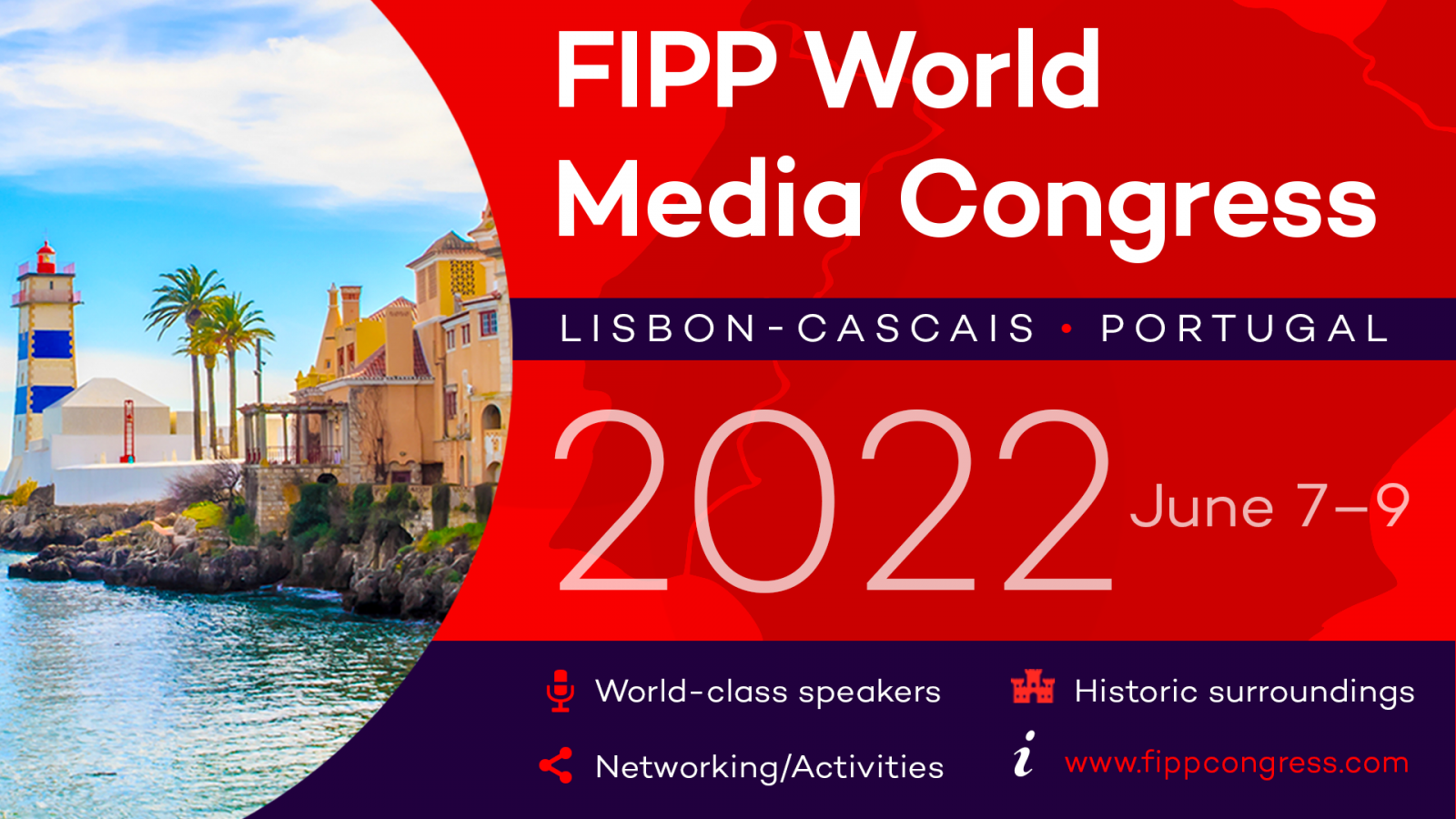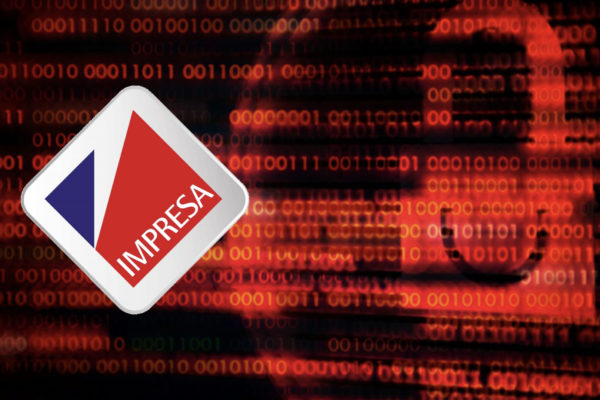Impresa’s CEO on Portuguese media, the opportunity in streaming, and THAT cyber-attack
The biggest media company in Portugal, Impresa, has for nearly 50 years set the news agenda via its flagship brand, Expresso. It is, according to CEO Francisco Pedro Balsemão, “a very big fish in a very small pond.”
It is an exciting time for Impressa as after a period of stagnation sales of Expresso’s print version are starting to grow again. Meanwhile its digital brands go from strength to strength, and most recently it debuted the country’s first ever native language TV streaming service.
Balsemão will be speaking at the 44th FIPP World Media Congress in June, and ahead of that – in this exclusive interview for FIPP – he talks about how to grow media in a smaller company, how he looks to brands in larger countries for inspiration, and why the recent devastating cyber-attack on the company created many issues, but also elicited an incredible response.
Part of our: Meet the Speaker Series
Francisco Pedro Balsemão, Impresa
For readers not familiar with Portuguese media, can you tell us a little about the history of Expresso?
“So Expresso the newspaper, is almost 50 years old. It started off in 1973 during the Portuguese dictatorship. A year later the dictatorship fell and democracy began in Portugal, so we were in the right place at the right time. Over the next 50 years the company evolved in different ways. Newspapers, magazines and books followed and in 1982 we launched the first private TV network in Portugal called SIC.”
“Nowadays, we have dozens of different digital properties, and a year and a half ago we launched the first Portuguese paid streaming service.”
Just on the streaming service, what was it that made you think there was an opportunity there? Was it the fact that it is in the local language. Was that the main driver?
“Obviously we are a small, small country. So the company is a big fish in a small pond. And we’re always looking abroad at the best examples, the best case studies, to help us grow our business. We want to aim for the best both in publishing and in broadcasting. In Portugal people are still watching mostly traditional TV. And while we don’t have data about Netflix and other streaming services, we know from several different sources from other European countries, that consumption of streaming services is increasing. So from that point of view we are in a very good position.”
“I don’t think we will ever see a Portuguese Netflix or Portuguese Disney.”
“Since 2019 we have also posted strong financial results. So we thought it was a good time for us to test the Portuguese market in terms of being the first Portuguese-language paid streaming service in Portugal. And while we can’t obviously compete with or outperform Netflix, Amazon or Disney, we can be complementary to those streaming services.”
“In spite of the fact that there are European directives which are demanding that these international services have local content, I don’t think we will ever see a Portuguese Netflix or Portuguese Disney. About 80% of our content is Portuguese, and most of the content is fiction, though we also have locally produced documentaries which are quite popular. It is mostly about giving people what they can’t find anywhere else. And, obviously, high quality content that’s unique to us.”
I guess the streaming service is building on the capability and the core strengths that you have as a TV business?
“Soap operas, like EastEnders in the UK, are quite cheap to produce due to economies of scale. It’s cheaper than producing a Game of Thrones type series. We try to find a local Portuguese production company that can help us create the content. We’re building on our core capabilities on what we do best, which is produce and distribute content, and we will continue to do that.”
We can’t get away without talking about the unfortunate thing that happened recently when you were the subject of a cyber-attack. What happened there?
“On the second and third of January, for two days in a row, we were subjected to a very vicious and devastating cyber-attack. The attackers didn’t ask for a ransom, so it wasn’t a typical ransomware attack.”
“What we’ve learned from the authorities is that it was the first time that in Portugal that this sort of attack has happened. It was then replicated with Vodafone Portugal, a couple of weeks after. What happened was that they destroyed our infrastructure, our systems and some of our content. But fortunately, our archives weren’t affected.”
“It was pure evil, destruction for destruction’s sake. We are still recovering from it.”
“It was pure evil, destruction for destruction’s sake. We are still recovering from it. Our websites were offline for two days, then we managed to put some temporary sites back up and then get back to normal.”
“The teams were absolutely amazing with people working 24/7. Not just the tech teams, but newsroom staff and external people too. The support we received was incredible. It was very moving to see that people were actually with us. We received dozens of text messages and phone calls from everywhere – from advertisers, agencies, politicians and more.”
So has this spawned any new protocols for dealing with cyber-attacks?
“After an event like this you learn many lessons. Communication is key, but obviously you need to have procedures and policies to prevent this, and then if it happens, efficient disaster recovery systems. You have to have this very straight connection with the cyber security authorities.”
“Maleficent actors out there want to show off their skills in this arena and the media is always going to be attacked as it is high profile.”

More generally, how excited are you for the opportunities that you’re seeing coming down the track?
“I’m really excited about the different opportunities that we have, both in broadcasting and in publishing. First of all, direct to consumer publishing which we were not going to stop with.”
“With Expresso, for example, we’re always looking to diversify our revenue sources. We’re always looking for the best examples and case studies like the New York Times, which now has more than 10 million digital subscribers. We have to be strong in all of our revenue sources.”
“On the positive side Expresso was the only newspaper in Portugal that in 2021 actually grew in terms of sales of physical copies, which is amazing. So we are investing in our physical Expresso weekly spreads and giving great content to our digital subscribers.”
And are you looking at any new revenue sources?
“We are also continuing to shift our revenues to digital because this is happening everywhere including Portugal. We’re also very strong in b2b. Expresso is a very strong brand so we organise different conferences and have different editorial projects with the pharmaceutical companies. Pharma is really huge for us. And we’re looking into education and training courses too.”
“We are exploring opportunities in audio visual and broadcasting. We also want to strengthen our presence abroad and continue to develop our social networks. So we’re looking at different opportunities, but as you said before, keeping our core capabilities in mind, which is producing and creating and distributing content. I think we’re really good at that.”
? To see the latest speaker line-up for this June’s FIPP World Media Congress, along with details of the agenda and more, click here.









